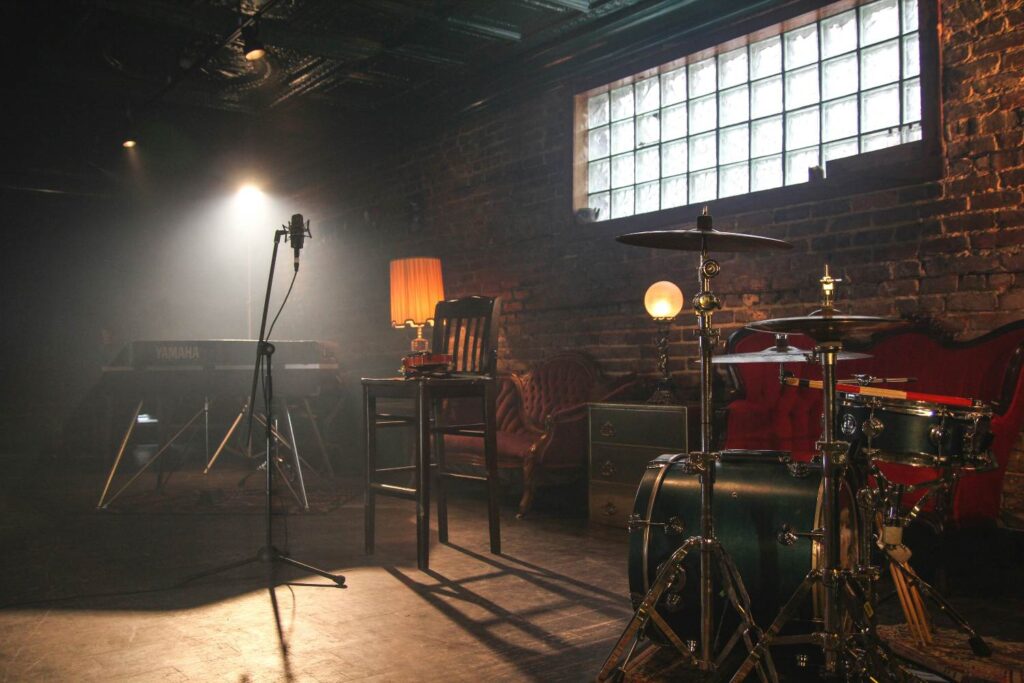What is a ticket levy?
A ticket levy is an additional charge that is added to the ticket price. This charge, even as small as £1 per ticket, can help finance venues – utilised to cover costs such as various operational costs.
And at a time where music venues and nightlife businesses are stuggling under financial pressures, the Government has announced they will support a levy on ticket sales. The announcement was in response to a report by CMS (Culture Media and Sport) Committee – one of the select committees of the House of Commons.

What is the CMS report on grassroots music venues?
The Culture Media and Sport Committee produced a report earlier this year on the health of British grassroots music venues. The CMS Committee’s report made a number of recommendations, with the aim of healing the grassroots music sector, benefiting jobs, opportunities, and in turn British culture and local communities.
One of the recommendations was a £1 voluntary ticket levy. The ticket levy was initially proposed to the Culture Media and Sport Select Committee (in March) by a panel of representatives from Live Music Exchange (LIVE), Music Venue Trust and National Arenas Association.
Hence, in an official statement, the Government announced – “We agree with the Committee’s recommendation that the music industry should introduce a voluntary levy on arena and stadium tickets to support grassroots music venues, artists and promoters. We believe this would be the quickest and most effective mechanism for a small portion of revenues from the biggest shows to be invested in a sustainable grassroots sector.”
Creative Industries Minister Sir Chris Bryant said: “Grassroots music venues are one of the UK’s most valuable and yet undervalued cultural assets. That is why I am urging the industry voluntarily to introduce a ticket levy on the biggest commercial players, to help ensure the health and future success of our entire live music industry for decades to come.”
Why is a levy for music venues necessary?
Last year, the UK experienced a net loss of 125 grassroots music venues across the UK, equivalent to over a tenth of the sector. Grassroots music venues are essential for the prosperity and growth of local artists and music professionals. They provide not only a platform to perform, but also space for rehearsals and social arts programmes.

How much money could a voluntary levy provide for live music venues?
A £1 levy, even when voluntary, can provide a significant boost to live music venues.
Some bands have already taken the step to donate a portion of ticket sales to help fund smaller venues. Enter Shikari gave £1 of every ticket sold for their 2024 arena tour to the Music Venue Trust charity as a gesture of support for the grassroots live music sector. Coldplay have also pledged to donate 10% of profits from their upcoming UK stadium tour to support smaller venues.
Earlier in the year, Carly Heath, Bristol’s Night Time Economy Advisor, proposed that a 1% fee be added to tickets to the city’s live music venues, and also local large scale events. This is set to create up to £1 million per year for Bristolian venues.
How would a ticket levy be introduced?
A new campaign by the Music Venue Trust will be urging large scale venues, stadiums and concert halls to include an optional £1 charitable fee as part of their ticket buying process. This £1 fee would be optional for customers, allowing them to opt-in to charitably supporting grassroots music venues.
The first step is to spread awareness about the decision, which is why the Government’s support and backing could prove greatly helpful.
At NDML, we also hugely support the premise of a ticket levy. We have worked closely with Music Venues Trust and the NTIA; we have made it our mission to support late night businesses such as live music and entertainment venues. However, we understand that, because of the state of the sector, a ticket levy might not be enough to fix the sector.
What about a cut to VAT for live music venues?
In the CMS Committees’ report, they recommended that – “The Government should introduce a temporary cut to VAT, based on venue capacity, to stimulate grassroots music activity and the wider economic benefits to local areas that grassroots music shows provide.”
In response, the Government said – “While the Government recognises the economic and cultural importance of the grassroots music sector to the UK, and keeps tax policy under review, we have no plans to introduce a temporary cut to VAT based on venue capacity or to undertake a bespoke economic analysis of the impact of a VAT cut to 10% on tickets.” They also said: “The Government is now fixing the foundations by delivering economic and fiscal stability, supporting public services, boosting investment, and setting the public finances on a sustainable path. These are essential foundations for long-run economic growth, and require tough decisions on tax, spending and welfare.”
Furthermore, they stated: “The Government is providing £5 million to Arts Council England’s Supporting Grassroots Music investment programme over 2023–25. This includes grants to recording and rehearsal studios, promoters, music festivals and live and electronic venues to grow their businesses, and develop their workforces and audiences in order to support musicians and others at the grassroots of England’s music sector. Following the 2024 Autumn Budget, the Government reaffirmed its commitment to strengthening England’s grassroots music sector by extending the Supporting Grassroots Music Fund for 2025–26, ensuring continued support for musicians, venues, and industry professionals.”
Mike Kill – CEO of the Night Time Industries Association, said:

“The CMS Committee’s report is a vital step in recognising and addressing the immense pressures on grassroots music venues across the UK. We welcome the Government’s support for a levy on arena and stadium tickets, alongside a VAT reduction, as immediate actions to stabilize this critical part of the music ecosystem.
This report highlights that the burden cannot fall solely on grassroots venues; rather, all players in the music ecosystem, including larger arenas and stadiums, must contribute to the solution.”
By working together—industry leaders, government, and fans alike—we can create a sustainable future for live music, preserving local venues and fostering a vibrant, diverse music culture across the UK.”







